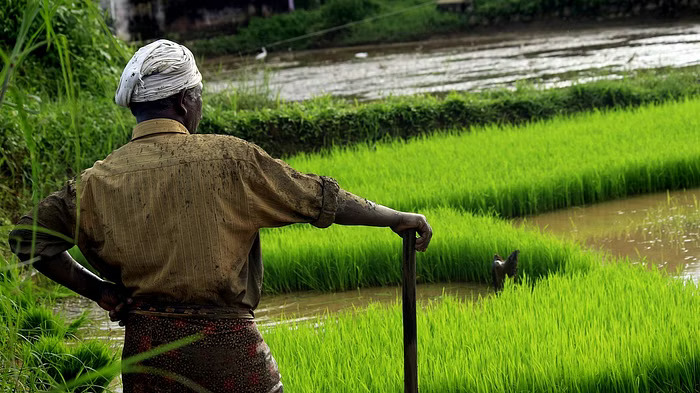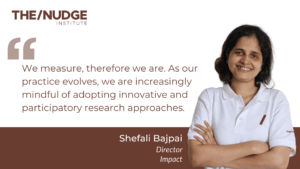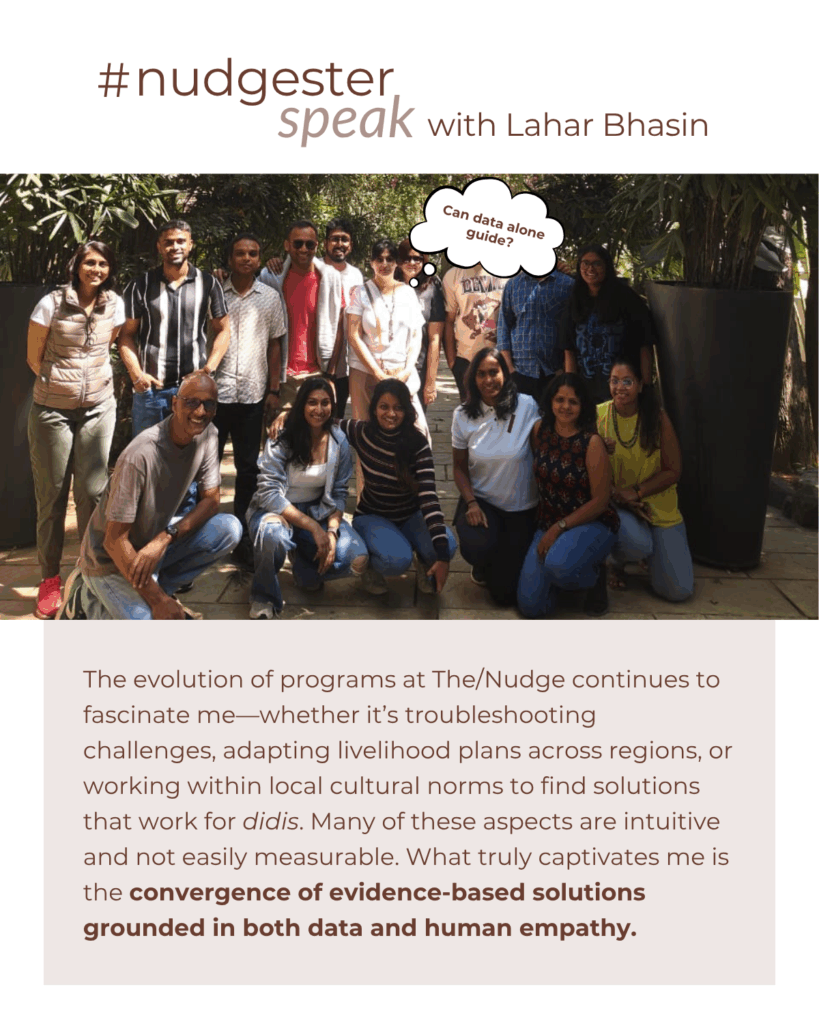Ours is a nation brimming with brilliance—a country of 1.45 Billion people with incredible minds, groundbreaking ideas, and innovative thoughts. It is these people who drive our economic growth and who build and shape the vibrant fabric of our society. Ours is also a country with 1.45 billion mouths to feed, a task so huge that only our farmers can shoulder it.
Today, as we celebrate Kisan Diwas (National Farmers’ Day), let us pause to acknowledge and honour the backbone of our nation—our farmers. They are not just cultivators of crops but the custodians of our sustenance, the stewards of our soil and environment, and the lifeline of our economy. Their labour feeds millions and sustains ecosystems, yet their contributions often go unnoticed or undervalued. On this day, we must reflect on the unparalleled importance of farmers in every aspect of our lives, from the food on our plates to the fibres of our clothes and the foundations of our economy. Farmers are not just producers; they are providers of life, often under challenging conditions.
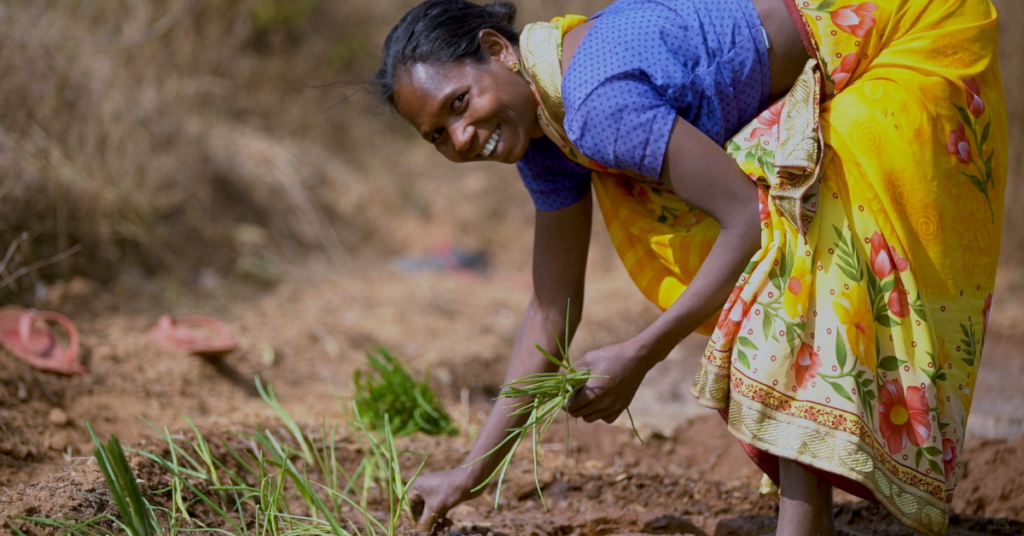
Our farmers have been sustaining our population for centuries now, but can we rest assured that they will continue to do so? It is getting increasingly difficult for small farmers to make a living growing food. The next generation of rural youth belonging to farming families is moving out of the profession. According to the Input Survey 2011-12, released in 2016 by the Union Ministry of Agriculture and Farmers’ Welfare, the average age of an Indian farmer was 50.1 years in 2016. This is likely to have increased since. This statistic underscores a deeper concern: farming is ageing, and younger generations are increasingly reluctant to embrace it as a livelihood. This phenomenon is seen around the world, but it is more critical in India as lands are fragmented, and it is relatively difficult for any collectivisation to happen on the production front to cope with this.
While on one side, the demand for food continues to rise, more people are leaving farming, and fewer are stepping into this essential profession. This poses an existential question of: Who is growing tomorrow’s food?
Before we answer that, let’s delve into why rural youth and their parents don’t want their children to get into farming. Dharmanna Waghmare, a 60+ year old farmer that we spoke to in Aland taluka in Gulbarga, Karnataka, says – “I have two sons, both of them don’t have interest in farming and think that agriculture is not a profitable profession, hence both of them have migrated out of the village and settled outside. I am the only one taking care of my farmland”. Shivappa Kattimani, another 60+ year old farmer from the same district but Jewargi taluka says, “I am practising agriculture after my retirement from the forest department and I am not able to do all agri field operations on my own. My son is pursuing B.Com and I want him to get a good job and settle in his life and not get into agriculture”.
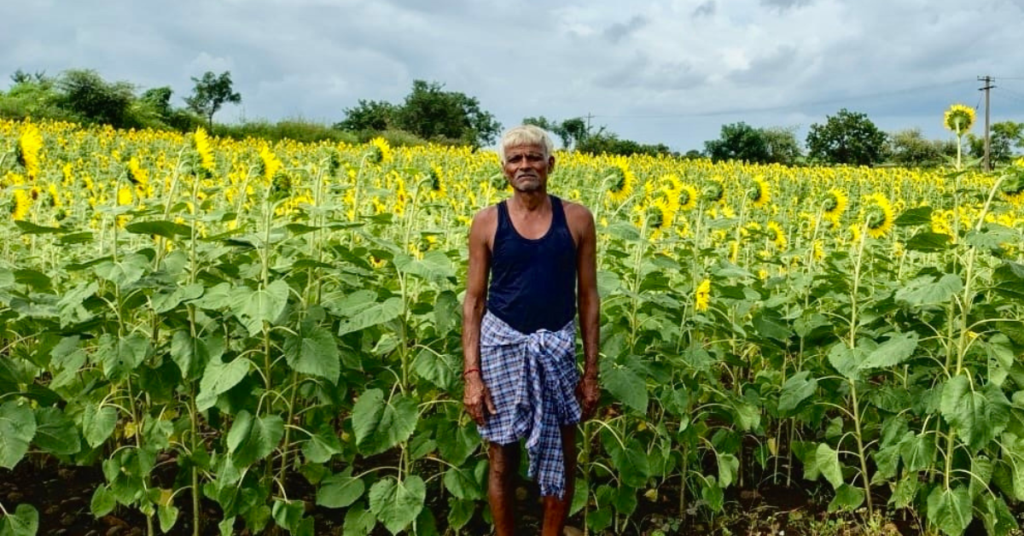
45% of India’s workforce is employed in agriculture. Current farming and food system activities drive biodiversity and habitat loss, soil erosion, soil fertility loss, pollinator collapse, and freshwater pollution. Small farmers also bear the brunt of climate change and are most vulnerable to it. A drought or a flood would mean the entire year’s savings and income would be wiped out. After braving all of this, when the farmer finally produces a crop, they are unable to secure good prices for it. The production, distribution and marketing inefficiencies in the system are so much that the small farmer is unable to make a living growing food. They are also trapped in the never-ending cycle of high-interest informal loans, which they are never able to repay.
As a nation, we owe our farmers more than gratitude—we owe them action. The challenges they face cannot be solved by policy alone; they require a societal commitment. So what can we do (as Governments, Civil society, private companies and consumers) to save our farmers and, in turn, save ourselves?
State and central governments have the power to transform the agricultural landscape through innovative policies and programs that address both present challenges and future opportunities. A lot has already been done by the government, and there’s an opportunity for a lot more. Fair prices can be ensured through reforms in Minimum Support Price (MSP) policies. Market access can be enhanced by expanding digital platforms like e-NAM and integrating blockchain technology to ensure transparent transactions and fair pricing for farmers. Investments in infrastructure such as roads, watersheds, community ponds, solar-powered cold storage, smart irrigation systems, and rural agri-logistics hubs can help secure water, reduce post-harvest losses and improve efficiency.
Agri-innovation zones can be created, modelled after industrial zones, to encourage collaboration between farmers, startups, and research institutions. Climate-resilient agriculture can be advanced through subsidies for IoT-enabled precision farming tools, climate forecasting systems, and carbon farming incentives, rewarding farmers for environmental stewardship. Expanding access to low-interest credit through digital platforms and introducing performance-linked insurance can mitigate financial risks. Additionally, initiatives to promote rural entrepreneurship—such as incubators for agri-tech startups and mentorship programs for young farmers—can attract the next generation to farming.
Non-profits, civil society, and quasi-government organisations can significantly support farmers by addressing key challenges and building sustainable solutions. Providing access to affordable credit, quality inputs, and modern technologies can improve productivity while promoting Farmer Producer Organisations (FPOs) strengthens market linkages and ensures fair prices. Training farmers in climate-resilient and sustainable practices helps secure long-term agricultural and environmental health. These organisations should also prioritise social equity by empowering women farmers, engaging youth in agriculture, and supporting marginalised communities.
Private companies and startups can play a transformative role in empowering farmers by leveraging innovation, technology, and market-driven solutions. They can develop tools like precision farming technologies, mobile apps, and AI-powered advisory platforms to optimise crop management and resource use.
Digital marketplaces and e-commerce platforms can connect farmers directly to buyers, ensuring fair prices and reducing dependency on intermediaries. Affordable financial products like micro-loans, crop insurance, and pay-as-you-go models can address farmers’ financial vulnerabilities. At the same time, investments in post-harvest infrastructure, such as cold storage and logistics, can reduce wastage and increase profitability. Companies can also introduce sustainable farming inputs like climate-resilient seeds and organic fertilisers while offering training to farmers on modern agricultural practices and sustainability. Additionally, fostering rural entrepreneurship by mentoring farmers in value-added activities can further enhance incomes.
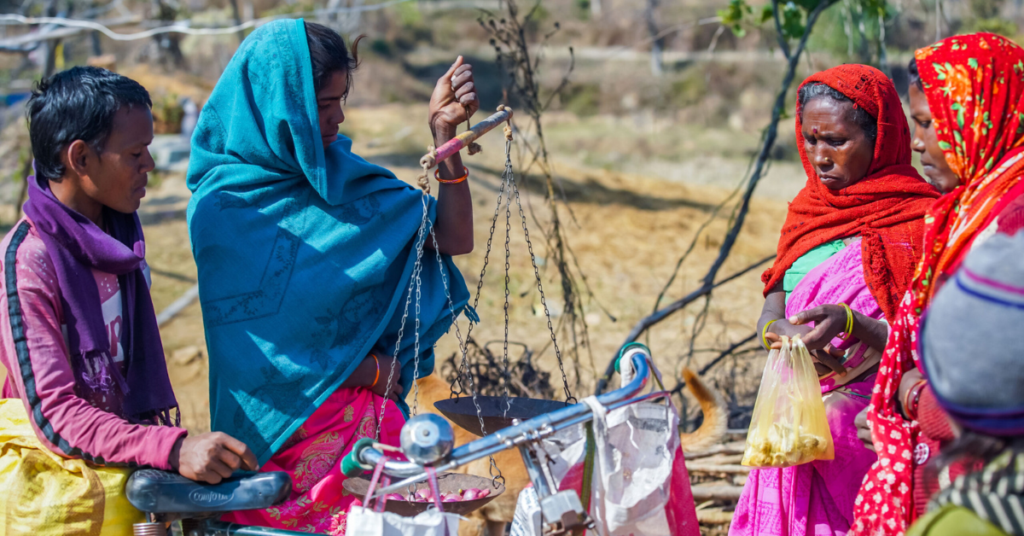
As consumers, we can support our farmers in India by making thoughtful choices and knowing where our food comes from. Purchasing local and seasonal produce helps ensure farmers earn fair prices while choosing organic (Yes, that weirdly shaped tomato with the discolouration is better for you) and sustainably produced goods(low water and low inputs) promotes earth-friendly practices. Participating in community-supported agriculture (CSA) programs or buying from Farmer Producer Organisations (FPOs) connects us directly with farmers, giving them better market access and a better share of the final price that a consumer pays.
Reducing food waste, visiting farms through agro-tourism, and donating to NGOs working for farmer empowerment can also make a significant impact. Additionally, being informed about farming challenges and advocating for policies that ensure fair prices, market access, and climate-resilient farming are all essential steps. As consumers, we have to send the right signals and the message to our farmers. The day we signal that we prefer locally grown, imperfect-looking, zero-chemical food, our farmers will happily shift to that, as that will save their soils, too.
All of these changes can’t be done sequentially; most of these would have to be done in parallel, and to be fair, there is work happening on all of these fronts. It would have to be accelerated and amplified, though, as we lose farming youth to city jobs every day, and farming continues to be unsustainable. Let us all do our bit to build a future where farmers thrive, where their hard work is rewarded, and where their contributions are celebrated every single day. This Kisan Diwas, let us honour our farmers by committing to their empowerment—for they are the ones who truly sustain life.

